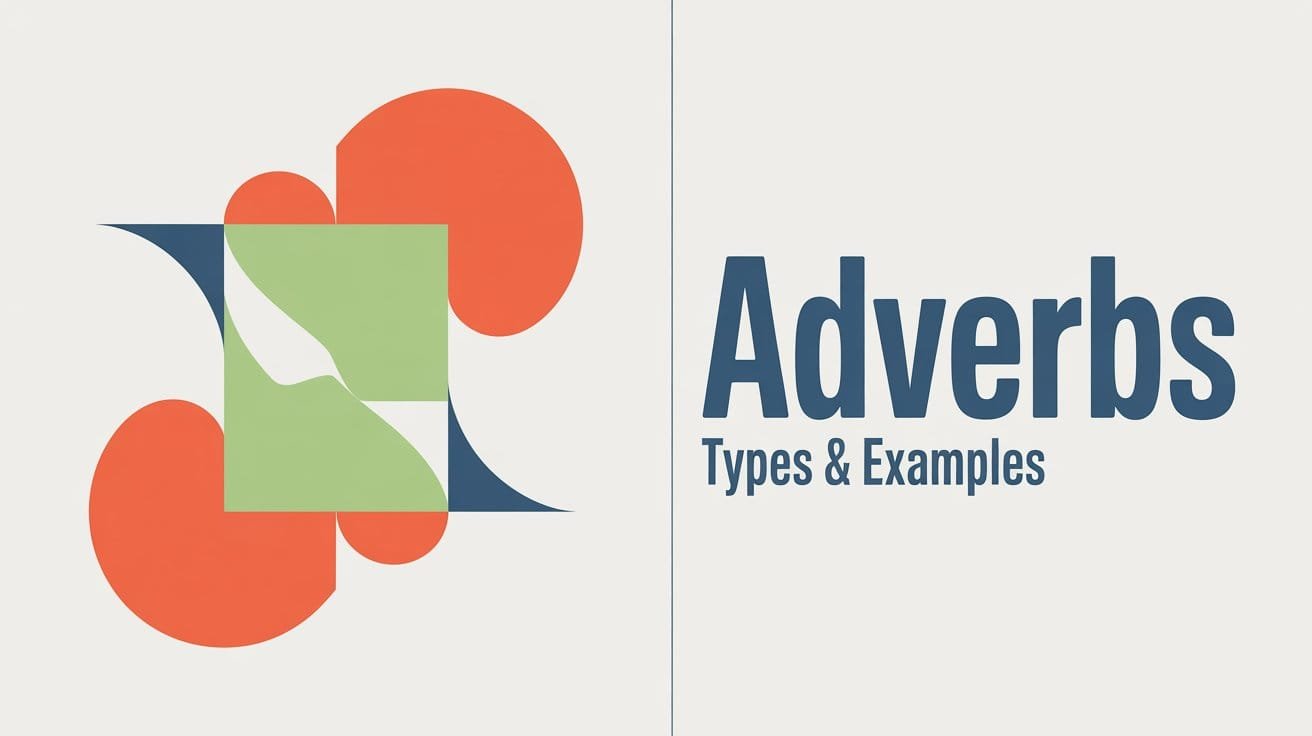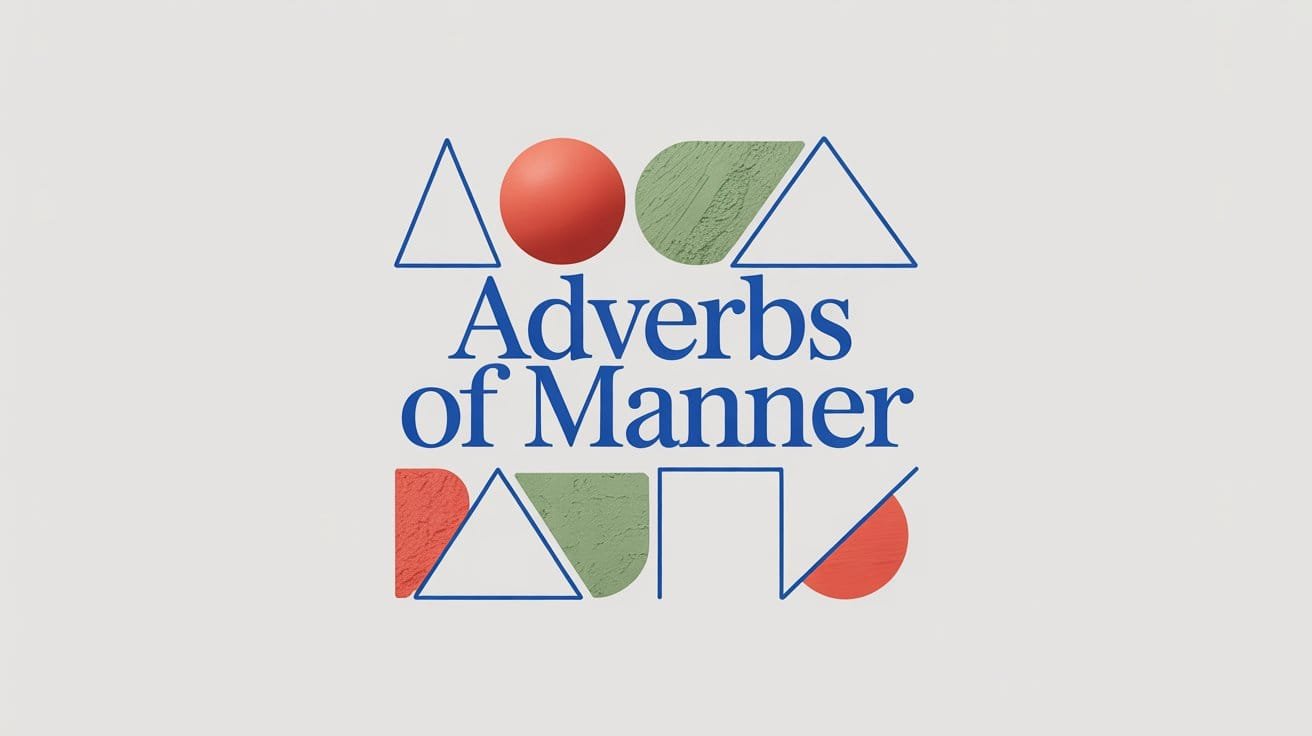Imagine having a secret language tool that lets you express exactly how much something is happening or how strong it is. Well, that’s what adverbs of degree are!
These simple words, like “very,” “extremely,” and “quite,” help you spice up your sentences and convey intensity. Whether you want to say something is super exciting or just a little interesting, adverbs of degree are your best friends in English.
What Is An Adverb of Degree?
An adverb of degree is a word that tells us more about the intensity or degree of an action, adjective, or another adverb. It helps you express how much or to what extent something happens.
To put it simply, an adverb of degree tells us whether something is happening mildly, moderately, or intensely. For example:
- She sings softly.
- It is very hot outside.
- He is quite talented.
Adverb of Degree Examples
Adverbs of degree have a special job in your sentences. They can make an action stronger or make it softer. They can also show how much or how little something is happening, and they can give you a rough idea of how intense it is. Sometimes, they can even point out the most extreme degree.
Here are some common adverbs of degree examples:
- She is extremely excited. [Stronger]
- He is absolutely brilliant. [Stronger]
- The movie was somewhat boring. [Softer]
- I am slightly tired. [Softer]
- They are completely ready. [How much]
- She is utterly amazed. [How much]
- The meeting is almost over. [How intense]
- I am nearly finished with my work. [How intense]
- I am fully convinced. [Extreme degree]
- The project is entirely complete. [Extreme degree]
Placement of Adverbs of Degree
Where you place adverbs of degree in your sentence can affect the meaning. Typically, they go before the verb or adjective they are modifying:
- She is extremely talented.
- It is very expensive.
But in some cases, they can also appear at the beginning or end of a sentence:
- Surprisingly, he finished the race.
- He finished the race surprisingly.
Adverbs of Degree Usage
Let’s explore some real-life situations and examples to better understand how adverbs of degree work:
Scenario 1: At the Café
You’re at a café with a friend, and you’re discussing the coffee.
Friend: How’s the coffee here? You: It’s quite good, but not exactly the best I’ve ever had.
In this conversation, you used adverbs of degree to express the degree of goodness in the coffee. “Quite” indicates a moderate level of goodness, while “exactly” suggests you’ve had better.
Scenario 2: Watching a Movie
You’re discussing a movie you just watched with your family.
You: The movie was really funny. Sister: It was hilariously funny!
In this exchange, you and your sister used adverbs to convey the degree of funniness in the movie. “Really” suggests a high level of humor, while “hilariously” amplifies it even further.
Adverbs of Degree List
Here is a list of common adverbs of degree:
- Very
- Extremely
- Highly
- Utterly
- Absolutely
- Incredibly
- Quite
- Rather
- Fairly
- So
- Too
- Almost
- Nearly
- Fully
- Completely
- Partly
- Barely
- Entirely
- Perfectly
- Terribly
Exercise: Adverbs of Degree
Instructions: For each sentence, choose the appropriate adverb of degree from the options (very, fairly, extremely, almost, somewhat, quite, nearly, fully) to complete the sentence.
- The book was _______ interesting, but it could have been better.
- He was _______ asleep during the boring lecture.
- The cake was _______ delicious, and everyone loved it.
- She is _______ prepared for the upcoming exam.
- The concert tickets are _______ sold out.
- We are _______ convinced of the truth of his story.
- Most people left the theatre because the movie was _______ boring.
- The marathon is _______ over; just a few more miles to go!
- The exam was _______ difficult, but I managed to pass.
- We are _______ certain that the team will win the championship this year.
Answer Key:
- The book was somewhat interesting, but it could have been better.
- He was nearly asleep during the boring lecture.
- The cake was extremely delicious, and everyone loved it.
- She is fully prepared for the upcoming exam.
- The concert tickets are nearly sold out.
- We are fully convinced of the truth of his story.
- Most people left the theatre because the movie was extremely boring.
- The marathon is almost over; just a few more miles to go!
- The exam was fairly difficult, but I managed to pass.
- We are very certain that the team will win the championship this year.
FAQs
Q1: What is an adverb of degree?
An adverb of degree is a word that tells us how much or to what extent an action, adjective, or another adverb is happening. It helps us understand the intensity or degree of something in a sentence. These adverbs can make an action stronger (intensify it), make it weaker (diminish it), or provide information about the extent or degree of that action or quality. They allow us to express varying levels of intensity or describe the degree to which something is happening.
Q2: What are some common adverbs of degree?
Common adverbs of degree include “very,” “extremely,” “highly,” “utterly,” “absolutely,” “incredibly,” “quite,” “rather,” “fairly,” “so,” “too,” “almost,” “nearly,” “fully,” “completely,” “partly,” “barely,” “entirely,” “perfectly,” and “terribly.”
Q3: Where do adverbs of degree typically appear in a sentence?
Adverbs of degree usually appear before the verb or adjective they are modifying. However, they can also be placed at the beginning or end of a sentence. Their placement can affect the meaning of the sentence, so it’s important to use them correctly.
Q4: How do adverbs of degree differ from other adverbs?
Adverbs of degree specifically focus on intensity or degree, while other adverbs can have different functions. For example, adverbs of manner describe how an action is performed, while adverbs of frequency indicate how often something occurs. Adverbs of degree provide information about the strength or weakness of an action or description.
Q5: Can you provide examples of adverbs of degree in sentences?
Certainly! Here are some examples:
1. She’s very happy with her new job.
2. The concert was extremely loud.
3. He’s quite skilled at playing the guitar.
4. The weather is rather cold today.
5. The cake is absolutely delicious.



